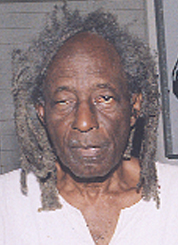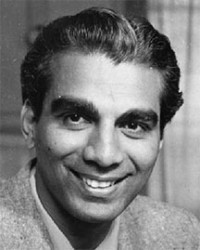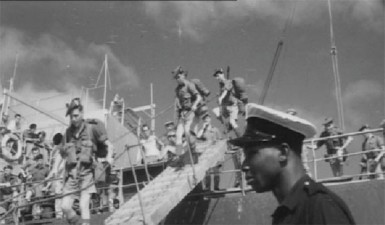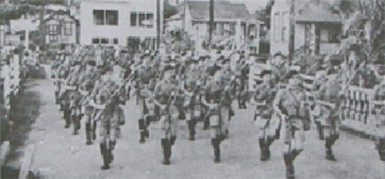On April 27, 1953 Guyanese, voting for the first time on the basis of adult suffrage at age 21, gave the PPP 18 seats of the 24 to be filled. It was the historic act of a critical mass of the population. It will be interesting to look back at the political culture of the 1950s before the descent to the day of maximum leaders. The nature and meaning of the 1953 elections will be the topic of the second of the articles I am writing on the people and events in that 1953 watershed year.
On May 22, 1953, the new parliament convened with an address by the head of state Governor Sir Alfred Savage. He praised the advanced constitution which Guyana had achieved. Without adult suffrage, the constitution in 1926 had offered more financial control to the elected members. The country, including most of the PPP leaders had been shocked at the election results.
On June 17 of the same year, the Chief Minister—not Prime Minister—Dr Jagan responded to the Governor’s address. In it he said, “We harbour no illusions about the constitution.” This was a quotation from Martin Carter, whom I have called elsewhere the most mature intellectual in the national movement.

The head of state was free to start a discussion on how to manage concerns to which elected representatives are entitled. He did not. Differences between elected and official members of the Executive Council were to be expected. The constitution gave directions providing for such differences, but the officials ignored the provisions.
It turned out later that a discussion by secret telegram was taking place between the Governor and the colonial office.
Concerns surfaced around issues such as preference for qualified Guyanese, irrigation for rice farmers, financial control in the railways, the Public Works Department, and dual control of schools. When elected ministers claimed that they were trying to implement election promises, the governor said with conviction, “That is the whole problem.” These issues suddenly became “communist subversion of the government.”
The main concrete issue was the support of certain ministers, and certainly not the Minister for Labour, under whose purview came the GIWU strike for a poll to decide recognition between rival unions. That strike had lasted some fifty days and had won some sympathy from outside the industry. On Septem-ber 24, 1953, Dr JP Lachmansingh, Minister of Health and President of the GIWA made the announcement that the strikers were prepared to return to work.
On October 4, 1953, ten days later, the Queen’s Privy Council met at a royal castle to secure the Queen’s formal consent for her government’s decision as expressed in law by an Order in Council. The substance of the order was not disclosed or expressed. It remained secret until it was to be debated in the House of Commons.
On October 6, 1953, the BBC announced that Her Majesty’s Government (HMG) was sending battleships to British Guiana with all dispatch. Cheddi Jagan’s The West on Trial records that the troops landed on Friday, October 9 of that year. In a Stabroek News article, David Granger dates the landing as October 8, a more likely date.
Not publicly known are the mini-dramas, which still give life to the long past event. The House of Assembly was sitting its last with Sir Eustace Gordon Woolford, KC, as Speaker, presiding. He had been active with ARF Webber and EF Fredericks in the drafting of the Grand Remonstrance in 1927. Through legislation the British stealthily imposed a constitutional reversal, following the victory in 1926 of the Popular Party led by Webber and Canon.

When a member rose to question whether the British troops had landed as had been rumoured, Sir Eustace was most balanced. He replied that he had no official information, “but I have seen members of a European regiment about the streets of the city.”
Earlier that week at a meeting of the Governor’s Executive Council, an elected member had asked the Governor for the strength of the military forces dispatched to the country. He had replied, “I don’t know. I shall have to ask the admiral.” If there was a secret plot, it was not in the side of the elected majority. Their acts were rather public.
Every year now international journalists with access to the same sources have been writing features on the October, 1953 British invasion of British Guiana to dismiss the elected part of the Executive Council, after what Ashton Chase documented as 144 days towards progress. That elected part of the Executive Council has been sometimes falsely called a cabinet.
These annual articles take no account of the politics that led to the October events. In that sense they foster divi- sion by failing to document a period of national unity that frightened the empire.
The world knows the names of the Guyanese Leader of the People’s Progressive Party and that of his US-born wife, Janet Rosenberg Jagan, and has often seen photos of the Jagans’ offspring, none of whom had been born at that date. So the world has the impression that two unarmed persons

caused the British Government to lose its cool and contradict its posture of “leading colonies to self-government.” By care or carelessness also, the official reasons for the extreme measure of dispatching gunboats and regiments do not form part of the recent stories.
These disgusting pseudo-histories in celebration of a notable family do very little to explain the real political accomplishments and role of Cheddi Jagan.
On or about October 9, 1953, the contemporary world expressed mixed responses to the highly unlikely scenario painted in the White Paper read on radio by Mr John Gutch, the Colonial Secretary. Invasion of the country, dismissal of elected ministers—whether or not they were part of the “plot”—and suspension of the constitution after 5 months had become necessary. The White Paper continued that the reason for these actions was “to prevent British Guiana being turned into a communist state subordinate to Moscow.”
It was a colony of 83 000 square miles bounded on the north by the Atlantic Ocean, on the south by Brazil, on the east by Suriname and on the west by Venezuela. Citizens, then officially subjects of empire, were quite stunned at the sight of white soldiers patrolling the streets with rifles at the ready. The soldiers were no less bewildered. Some of them asked the people, “Where is the war?”

Martin Carter the poet, always taking the people’s pulse, swears that an old woman asked her mattee on the hearing of soldiers, “They can shoot fire?” The overlords were very thorough. Within days British newspaper carried the news of a plan to burn the city all because the sight of invaders in her country caused an old patriotic woman to think aloud of options.
The British troops were well distributed in a short period of time. Throughout the greater part of the coastal belt appeared detachments of Guyanese police covered by armed British soldiers with guns at the ready. The people’s early morning routines had been disrupted without notice in the name of public safety. From early morning routines were interrupted by foreign units bearing arms. Workers living along the routes of the coordinated raids were blocked from leaving a cordoned area to go to their place of work or follow their routines.
One woman was told brusquely, “Get off the village!” She had been standing with her bicycle on her bridge, not her village, trying to get on her way to work. But such was the intelligence of the foreign enforcers. “Get off the village” became a phrase people threw at one another to jeer at the ignorance of the foreign troops.
Searches were widespread throughout the coast and seemed to be planned in such a way that the prime targets could not warn one another. By these means the authorities hoped to catch secret documents from Moscow to convince any possible critical opinion in House of Commons. There was up to the time of the debate on October 22 not a scrap of evidence. There never was any.
There was no to question whatever of arms and ammunition. The weapons they were seizing in this strange process were the votes of the people who had voted on April 27, 1953. The population soon coined phrases to match the antics of the authorities. Humour came to the rescue of pubic shock. There was disappointment with the Guiana authorities among their allies when no dramatic results came from the raids on those planning to hand the country over to Moscow.
A significant cross section of the people no doubt presumed that there was reason for action and waited with bated breath for the news. Member activists of the PPP were raided by the police units, eliciting both solidarity and mockery from other residents.
When the searches tapered off without any prize, the doubt changed into folk drama. People asked one another, after church, in chance meetings, and in shops and markets, whether they had found “The Thing.” The mere mention of this phrase “The Thing” would evoke bursts of laughter.
The PPP executive decided, in view of the absurdity and that charges were not yet made against the elected representatives, that Dr Jagan and Mr Burnham should leave the country to lobby and campaign in the UK against the suspension which had yet to be debated by the House of Commons. West Indian governments placed every possible obstacle in the way of the delegates, as did the USA. The two leaders were forced to charter a DC3 plane for Suriname to join KLM, the Dutch airline for London. West Indian organisations, unlike their home governments, were fully supportive of the Guyana delegates.
The West on Trial records the position the British Labour Party. Leader of the Labour opposition, Clement Attlee, had been Deputy Prime Minister to Churchill in the wartime cabinet and had defeated Churchill in 1945, achieved the nationalisation of some industry and introduced the National Health Programme and welfare state. When approached, Attlee replied to the PPP regretting his party’s “inability to intervene.” Churchill had once called Attlee, “A sheep in sheep’s clothing.”
The PPP leaders and all Guyanese got a lesson in British all-party nationalism. The UK Parliament approved the suspension of the British Guiana Constitution as recommended by the government.
The security searches in Guyana were widespread and thorough. Having told the world with confidence that there was in the colony a communist plot and a threat of violence supported by “some in the government,” it would have been convenient to find even a small cache of unlicensed firearms. Hardly a suspicious cutlass was found. What were the possible effects on Guyanese society?





